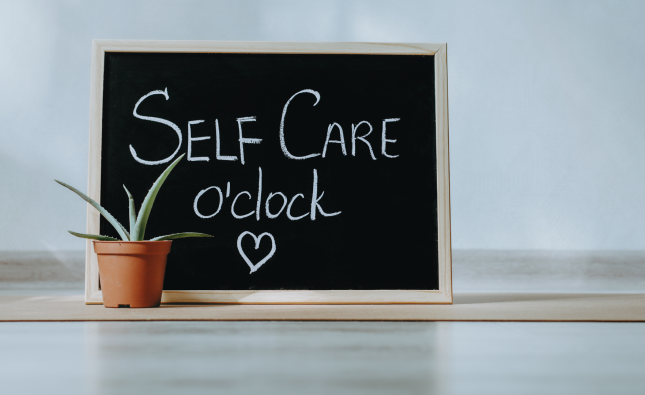
Are you a sports enthusiast who often wonders how the greatest athletes achieve their peak performance? The answer might just lie in something as simple as getting a good night’s sleep. Yes, you read that right! Sleep plays a crucial role in athletic achievement, and top athletes across the globe have acknowledged it time and again. Whether it’s Olympic gold medalists or professional football players, they all know that quality rest is vital for success on the field. In this blog post, we’ll explore precisely why rest is so critical to athletic performance and how you can optimize your sleep patterns to enhance your own abilities. So sit back, relax, and get ready to learn about one of the most important yet overlooked aspects of sports training – sleep!
The Science of Sleep
The Science of Sleep:
Athletes are well aware of the importance of sleep in their overall performance and well-being. In fact, studies have shown that lack of sleep can lead to a decrease in athletic performance. The science behind this is that sleep is critical for our bodies to recover from physical activity and repair muscle tissue. It is also during sleep that our bodies produce human growth hormone, which is essential for muscle growth and recovery. Therefore, athletes who don’t get enough sleep are at a disadvantage when it comes to both short-term and long-term performance.
There are a few things athletes can do to make sure they’re getting enough rest. First, create a regular sleep schedule and stick to it as much as possible. Second, avoid caffeine and other stimulants before bedtime. Third, create a relaxing bedtime routine to help you wind down from the day’s activities. And finally, make sure your sleeping environment is dark, quiet, and comfortable. By following these tips, you can make sure you’re getting the most out of your sleep and giving yourself the best chance for success on the field or court.
How Sleep Deprivation Impacts Athletic Performance
Sleep deprivation is a common issue for athletes. With early morning practices, late night games, and travel to competitions, it can be difficult to get enough rest. While some athletes may be able to power through on minimal sleep, research has shown that even small amounts of sleep loss can have a significant impact on athletic performance.
One study looked at the effect of sleep deprivation on college basketball players. The players were divided into two groups – one that slept eight hours per night and one that slept four hours per night – for six nights. The players were then tested on their shooting percentage, free throw accuracy, and three-point accuracy. The results showed that the group who slept four hours per night had significantly worse shooting performance than the group who slept eight hours per night.
Other studies have shown similar results in other sports. In one study of collegiate swimmers, those who averaged seven or more hours of sleep per night had significantly better swimming times than those who averaged less than seven hours of sleep per night. A study of high school football players found that those who got more than eight hours of sleep per night had fewer injuries and less daytime fatigue than those who got less sleep.
So how does sleep loss impact athletic performance? It is thought thatsleep deprivation leads to increased levels of fatigue and decreased motivation levels, both of which can negatively affect physical performance. Sleep loss also impairs cognitive function and decision making, which can negatively impact an athlete’s ability to execute plays
The Optimal Amount of Sleep for Athletes
Most people know that getting a good night’s sleep is important for overall health and well-being. However, many people do not realize the critical role that sleep plays in athletic performance. In fact, research has shown that the optimal amount of sleep for athletes is between 7 and 8 hours per night.
There are several reasons why sleep is so important for athletes. First, sleep helps the body recover from the stresses of training and competition. During sleep, the body repairs muscle tissue, replenishes energy stores, and clears out toxins that can build up during exercise. Second, sleep helps improve focus and reaction time. Studies have shown that even a small amount of sleep loss can lead to decreased alertness and increased mistakes on the field or court. Third, sleep promotes healthy hormone levels. Getting enough sleep helps maintain proper levels of testosterone and growth hormone, both of which are critical for building muscle mass and improving strength.
So if you’re an athlete who is looking to improve your performance, make sure you’re getting enough shut-eye!
Tips for Getting a Good Night’s Sleep
There are a few things you can do to make sure you get a good night’s sleep. First, establish a regular sleep schedule and stick to it as much as possible. This will help your body get into a rhythm and make it easier to fall asleep at night. Secondly, create a relaxing bedtime routine that will signal to your body that it’s time to wind down for the evening. This could include taking a warm bath, reading a book, or stretching. Lastly, make sure your sleeping environment is conducive to rest by keeping it dark, quiet, and cool.
Conclusion
Rest and sleep are essential for any athlete striving to reach their highest potential. Not only does a good night’s rest help maximize athletic performance, it can also help athletes stay focused, motivated and energized throughout the day. Adequate sleep is also important for recovery after physical activity as well as reducing mental fatigue. Therefore, getting enough quality sleep should be an integral part of any athlete’s training program if they wish to achieve optimum results.










